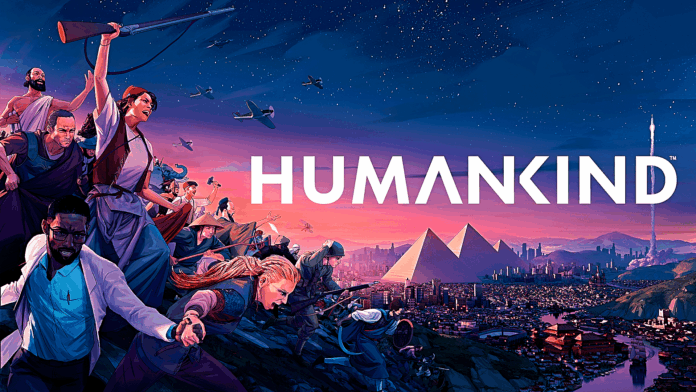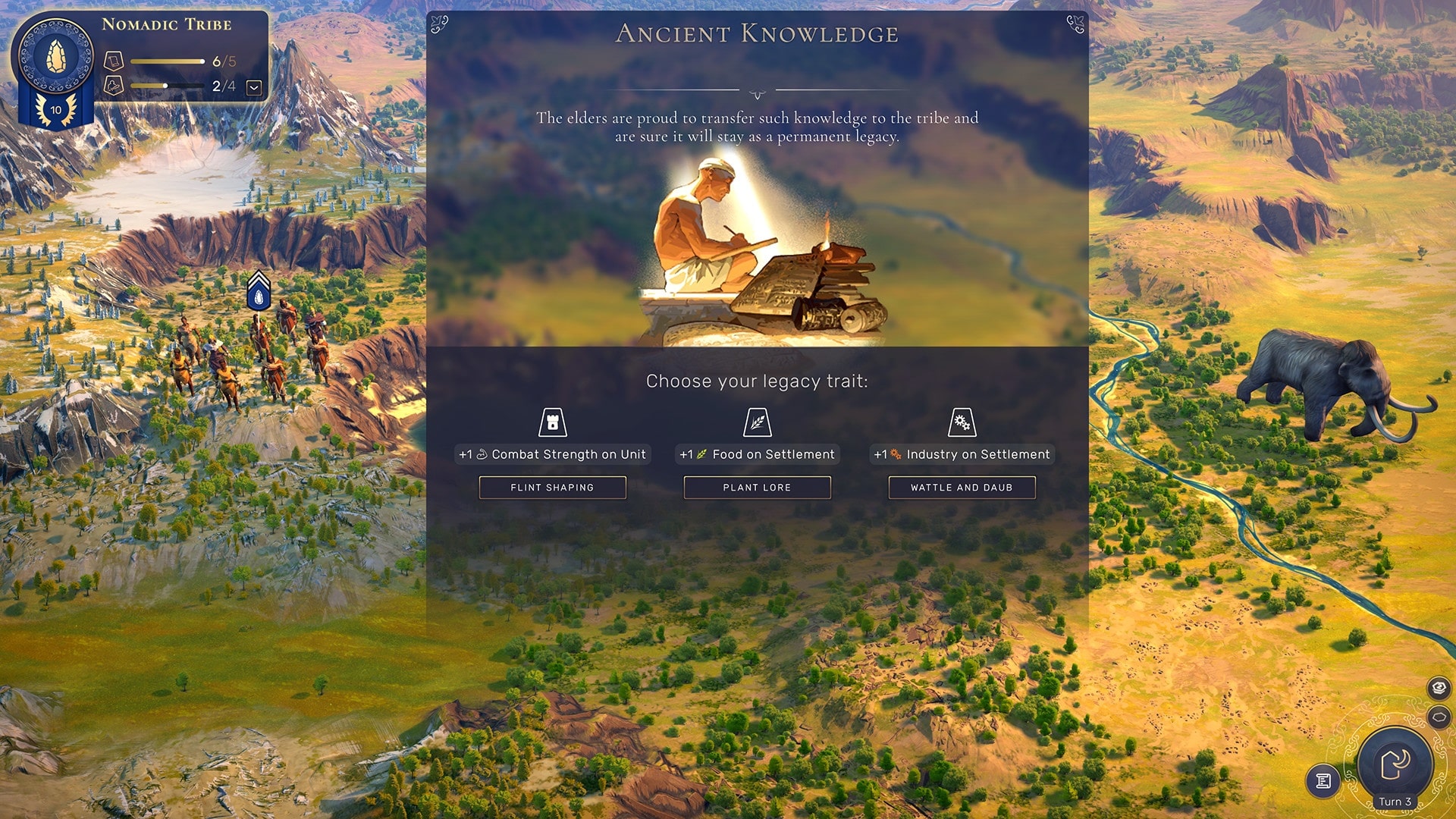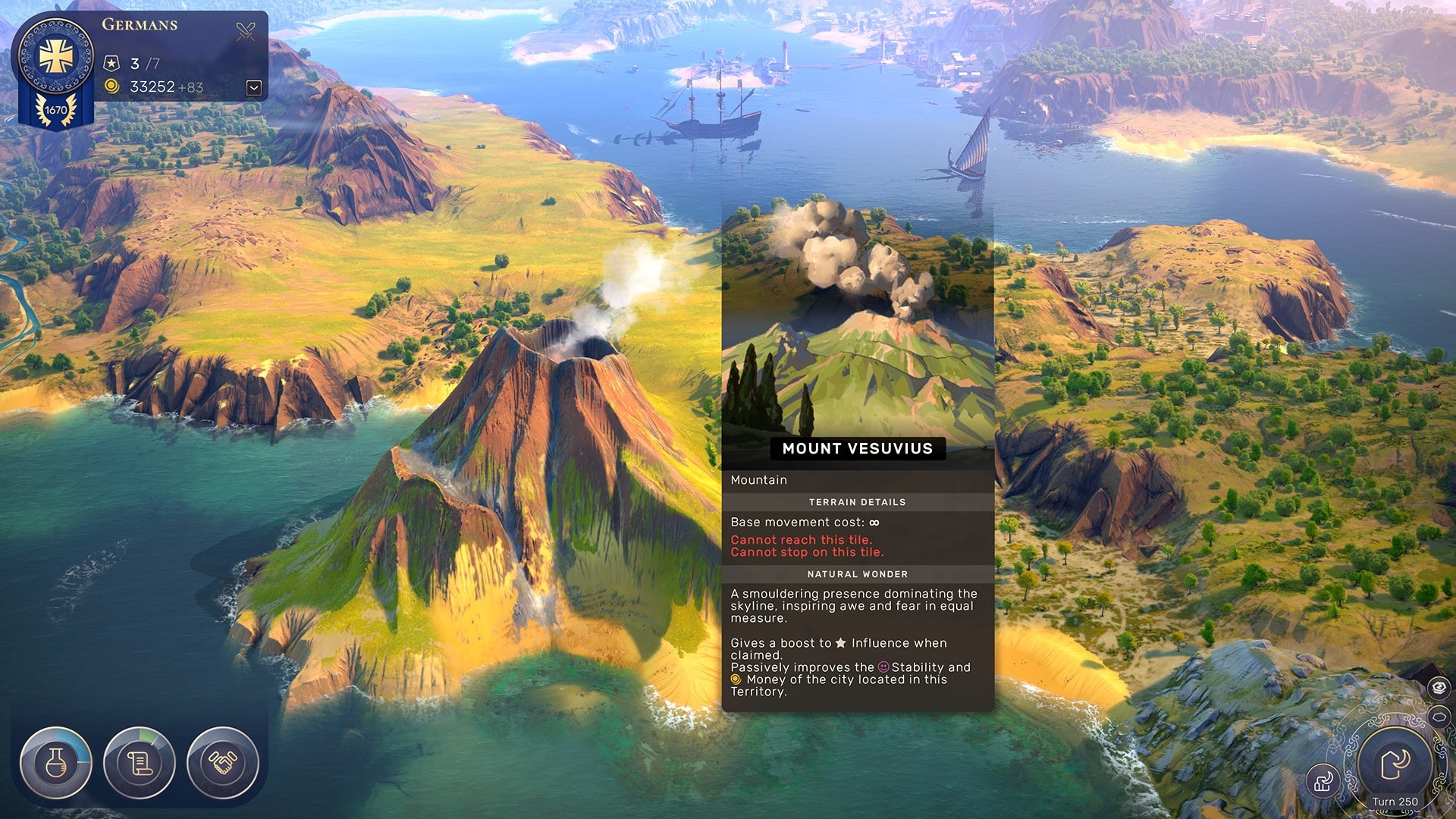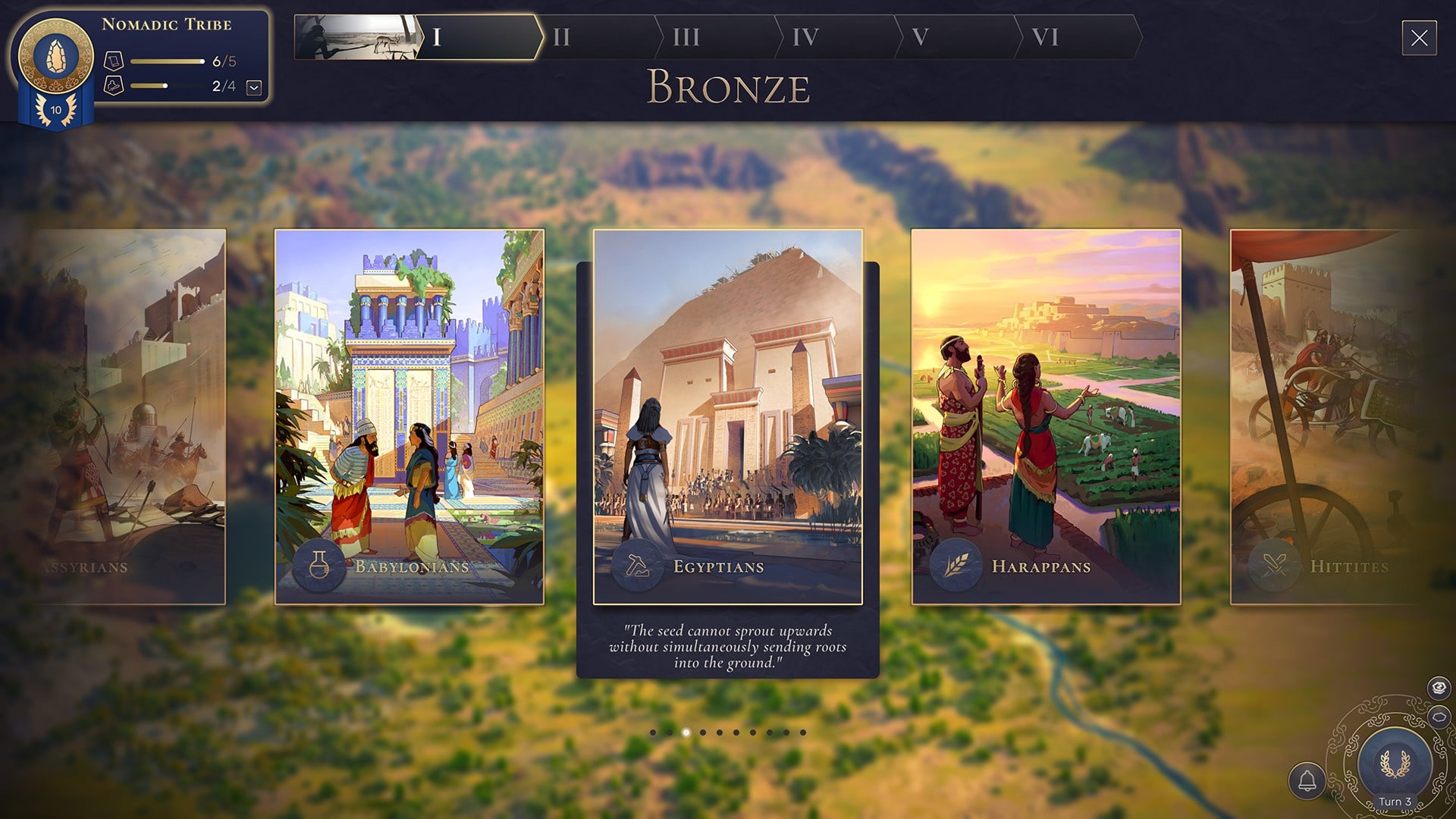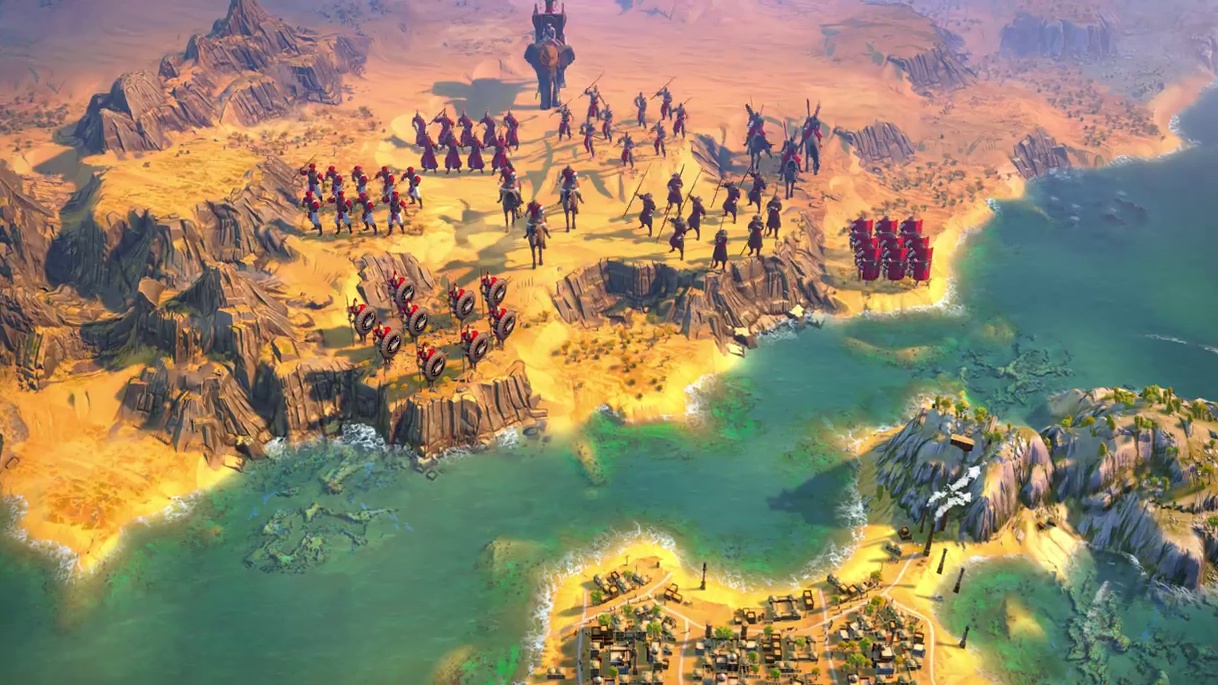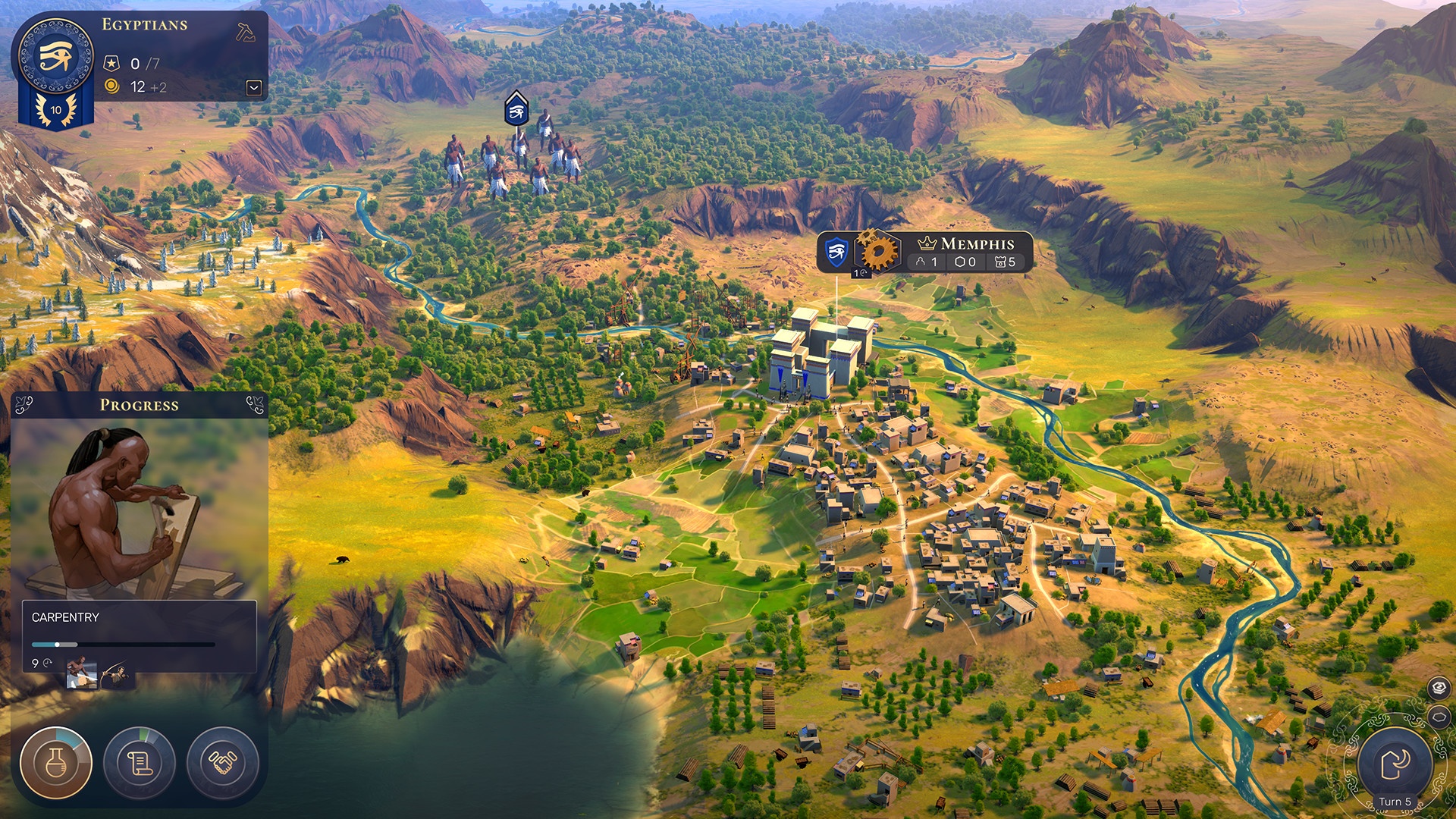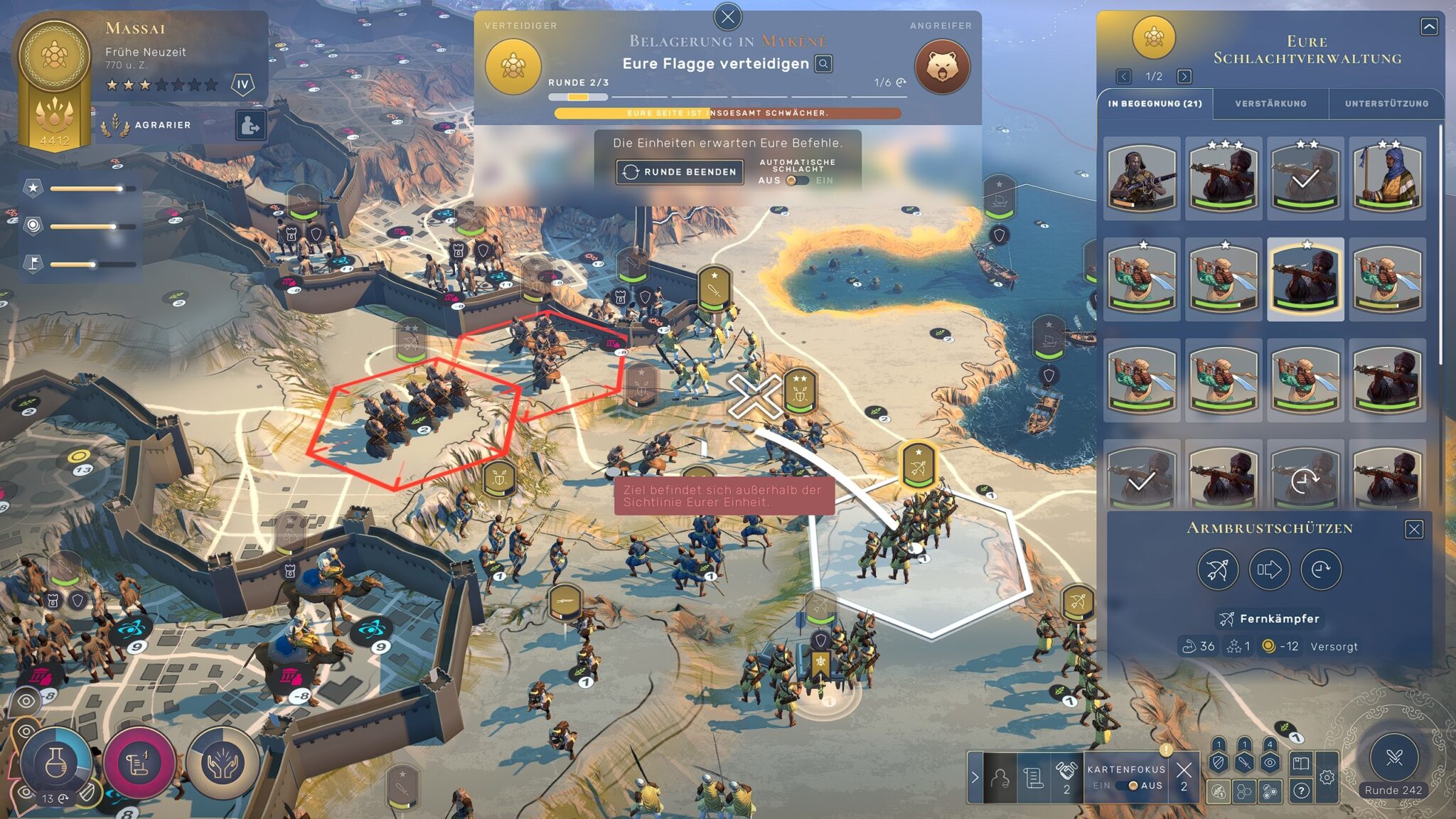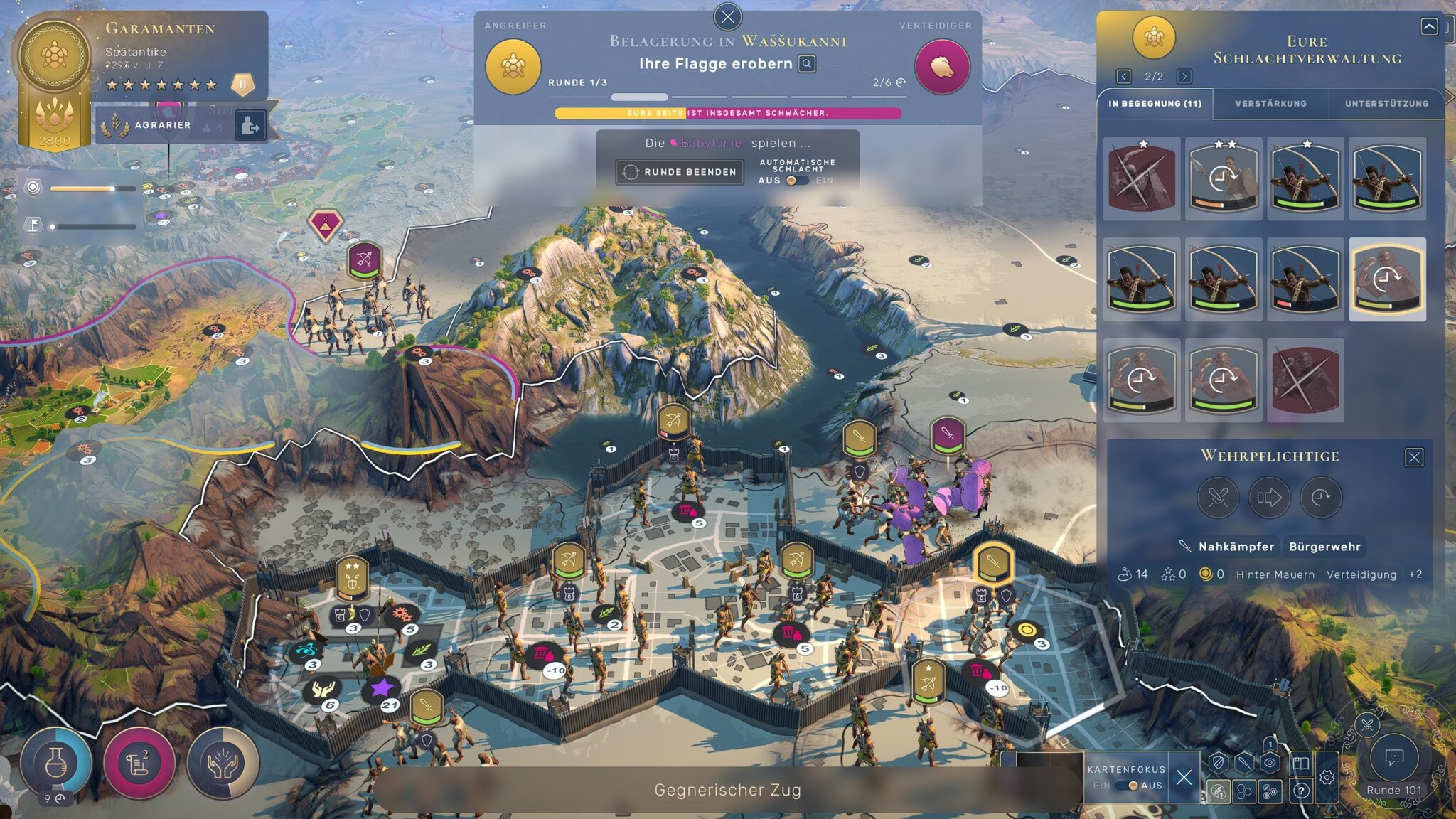Civilization 7 continues to lack any trace, but its biggest competitor can’t get out of its own way. We check if Humankind has become a better game eight months after release.
Philosopher Jean-Jacques Rousseau once claimed that civilisation was corrupting man. This was already the subject of much discussion in his time during the Enlightenment, which could have been avoided if there had been construction games back then.
For we know that Rousseau was wrong. After all, every title in our favourite genre teaches us that (almost) everything gets better the further we build our culture, advance research and increase prosperity!
Humankind, too, has had time to evolve since Release. Has it – according to our theory – also become better? To answer this question, we paid the Civilization competitor another visit. And this much up front: Humankind is currently squandering a great opportunity, just like Age of Empires 4.
Table of Contents
The release of Humankind was good, but not perfect
When Humankind was released last August, it turned out to be a successful, if not perfect, competitor to the top dog Civilization 6. Moreover, it came out at a stage when fans of 4X building strategy were already a little starved. After all, there is still no sign of Civilization 7, even though its predecessor is already six years old.
Now, however, Humankind also had its problems, first and foremost with the balance. The various game mechanics were not properly coordinated, so that research, for example, could not keep up with the progress of the epochs. In addition, systems such as religion remained expandable, just like the AI.
Despite the first DLC, too little has been done
So the question for this article was whether Humankind could resolve its biggest construction sites. To do this, we started a new game on “Slow” and the second highest difficulty level. Of course, we took a close look at the new civilisations that came into the game with the DLC Cultures of Africa.
The result was sobering. In the meantime, the developers have released a lot of small patches, all of which announce balance changes, AI improvements and bug fixes. But little has really been noticeable. The game essentially played like it did at release.
We were particularly struck by the still completely confused and illogical line-of-sight system. In Civilization, the rules are clear about who can shoot where and when. But not in Humankind. Archers still fire over mountains, while others cannot fire in a straight line over a valley because there is a unit in between. Frustration is thus programmed.
The balance still needs improvement
The balance between the game components is still lacking in the same way. Research still doesn’t keep up with the progress of the epoch. No sooner do we reach the special unit of our current culture than the next change is just around the corner.
And speaking of cultures: As many players write in their( Steam reviews of the DLC), new cultures were pretty much the last thing Humankind needed. Of course, this is relatively easy content to produce, but nevertheless, it would have been better to concentrate on the core mechanics. Because as some people point out, you can also get new cultures via mods, where they are also free.
At least some overpowered races have been nagged a little. If you want a complete patch overview, (can check herecan check here).
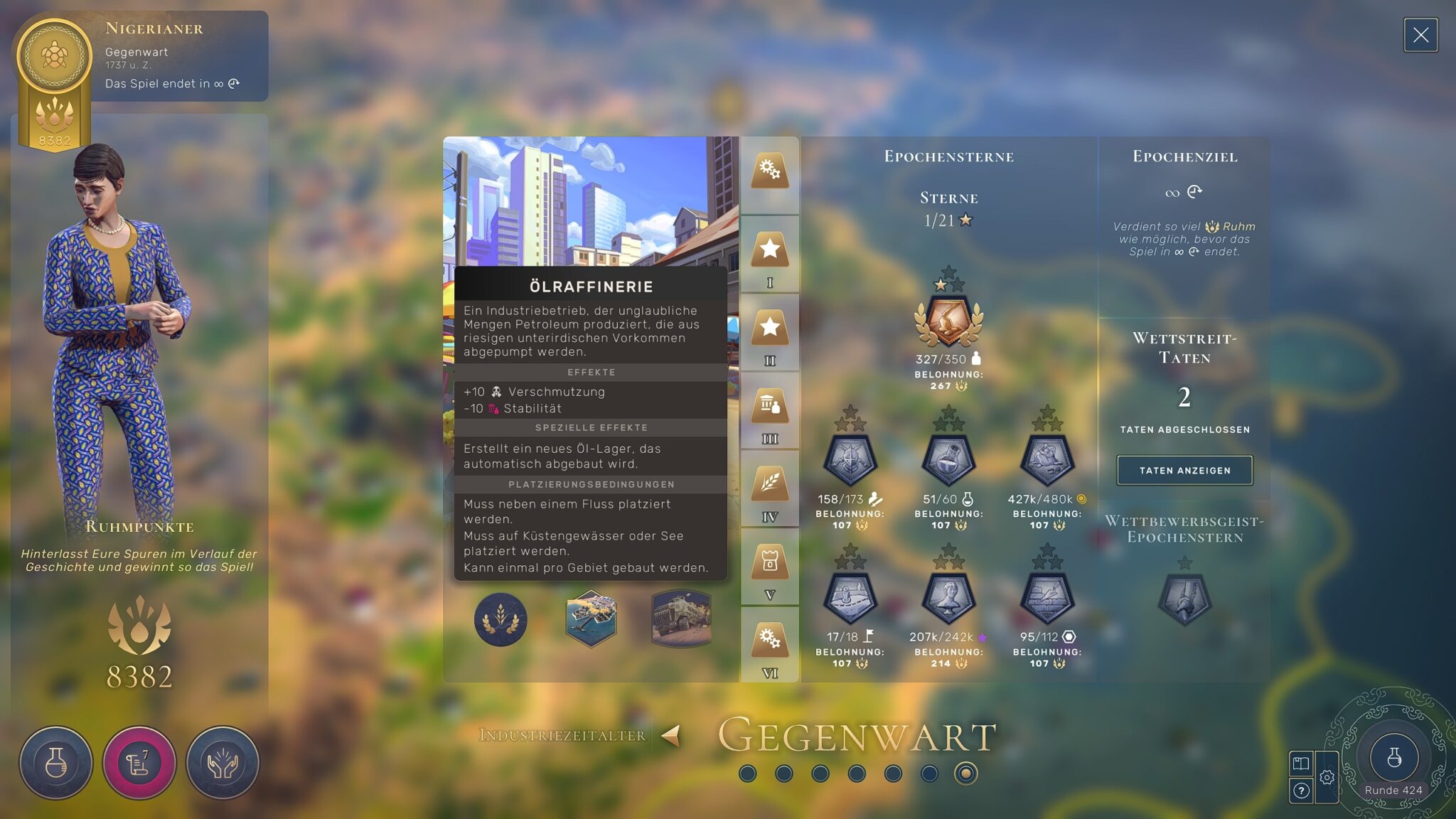
The DLC Cultures of Africa at a glance
Cultures of Africa costs nine euros and introduces six new cultures, one for each era. These are the Bantu, Garamantes, Swahili, Maasai, Ethiopians and Nigerians. As with all the other cultures, they can develop their strengths situationally, depending on the environment or the goals you are pursuing at the time.
The new races integrate nicely into the existing set, they did not seem overpowering to us. However, they do not bring much fresh air into the game. Those who don’t already know the cultures of the release version inside out will hardly notice any difference.
Bantu
The Bantu are expansionists, which allows you to take over outposts of neighbours already in the first epoch without having to officially attack them. In addition, they get influence for each neighbour. So they are made to expand properly right at the beginning.
Their special scout also contributes to this, as it automatically replaces all tribal units, can still multiply after the stone age phase and can establish new outposts. The special Mupia outposts also produce more food for your cities.
Garamantes
The Garamantes are agrarians. This means they can occasionally attract population from neighbouring areas to their cities. This gives your settlements a boost, but annoys the neighbours who lose inhabitants in the process.
Their special district grants bonuses in stony environments, so this culture can only reach its full potential in certain environments. Their special unit is a quite strong ranged rider.
However, its usefulness depends heavily on whether you have horses as a resource. In our game, we were unable to get two horses and therefore could not use the rider. But you can upgrade the Bantu scout directly into this rider, so that a change from Bantu to Garamantes fits well together.
Swahili
The Swahili are traders, with them you facilitate your access to luxury resources and get more money. The Swahili are especially strong if you have many coastal areas. Their special and strong trading port increases stability, brings more gold and influence. On the other hand, you can forget about their special unit, as ships are of little importance at this point.
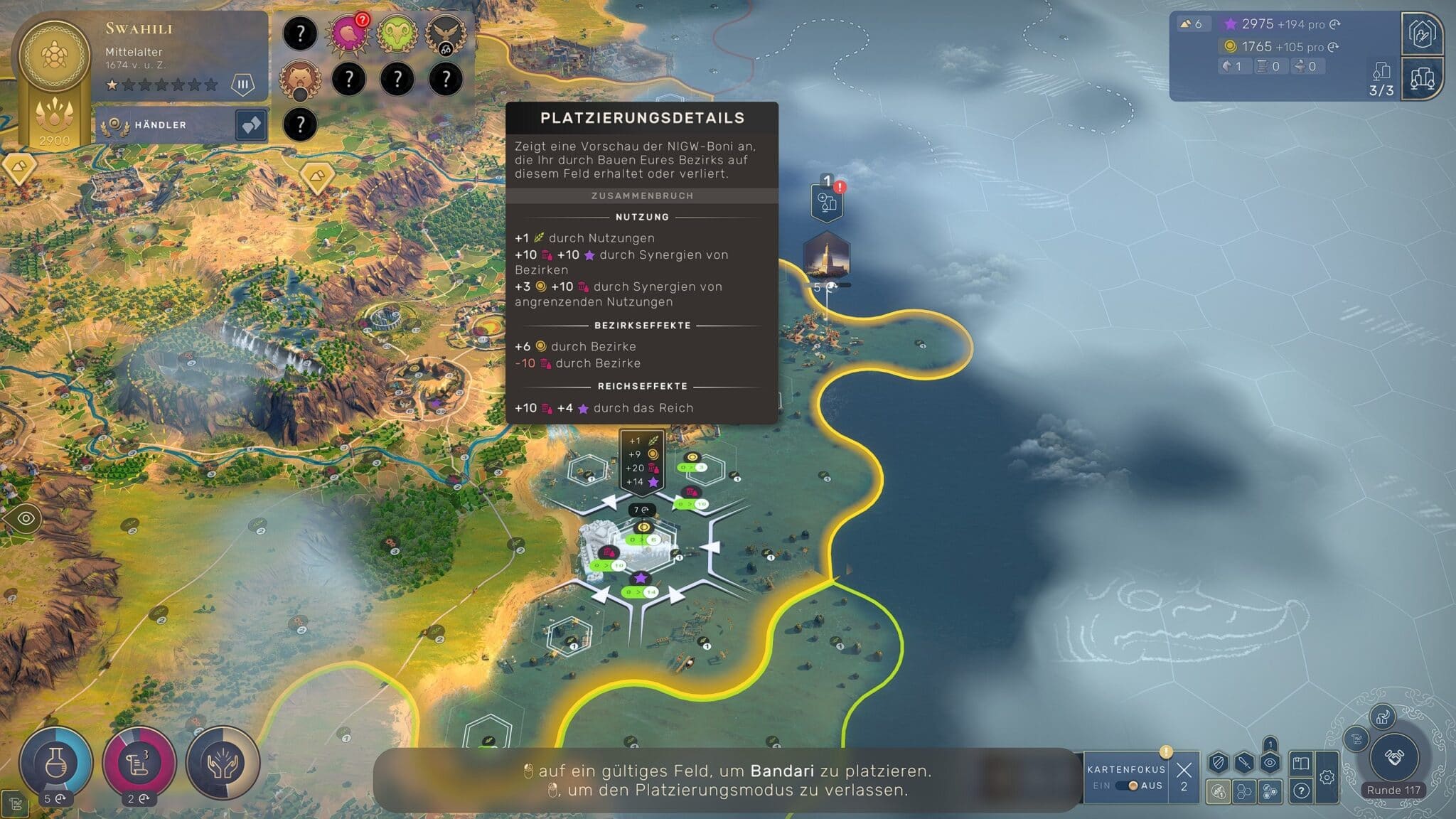
Massai
The Maasai are again agrarians. Their special district, the Enkang produces a very large amount of food, which gives your cities a decent boost. However, their special unit must be trained separately and cannot be upgraded from another unit. It also comes a bit late, which in our case once again led to us never using it.
Ethopians
The Ethiopians, like the Bantu, are militarists. But unlike the Bantu, they seem relatively weak. They strengthen garrison districts (of which you usually don’t have that many) with additional research. Their special building is a particularly strong garrison, which, however, can only be built on mountains and thus only has any use at all if you are geographically lucky.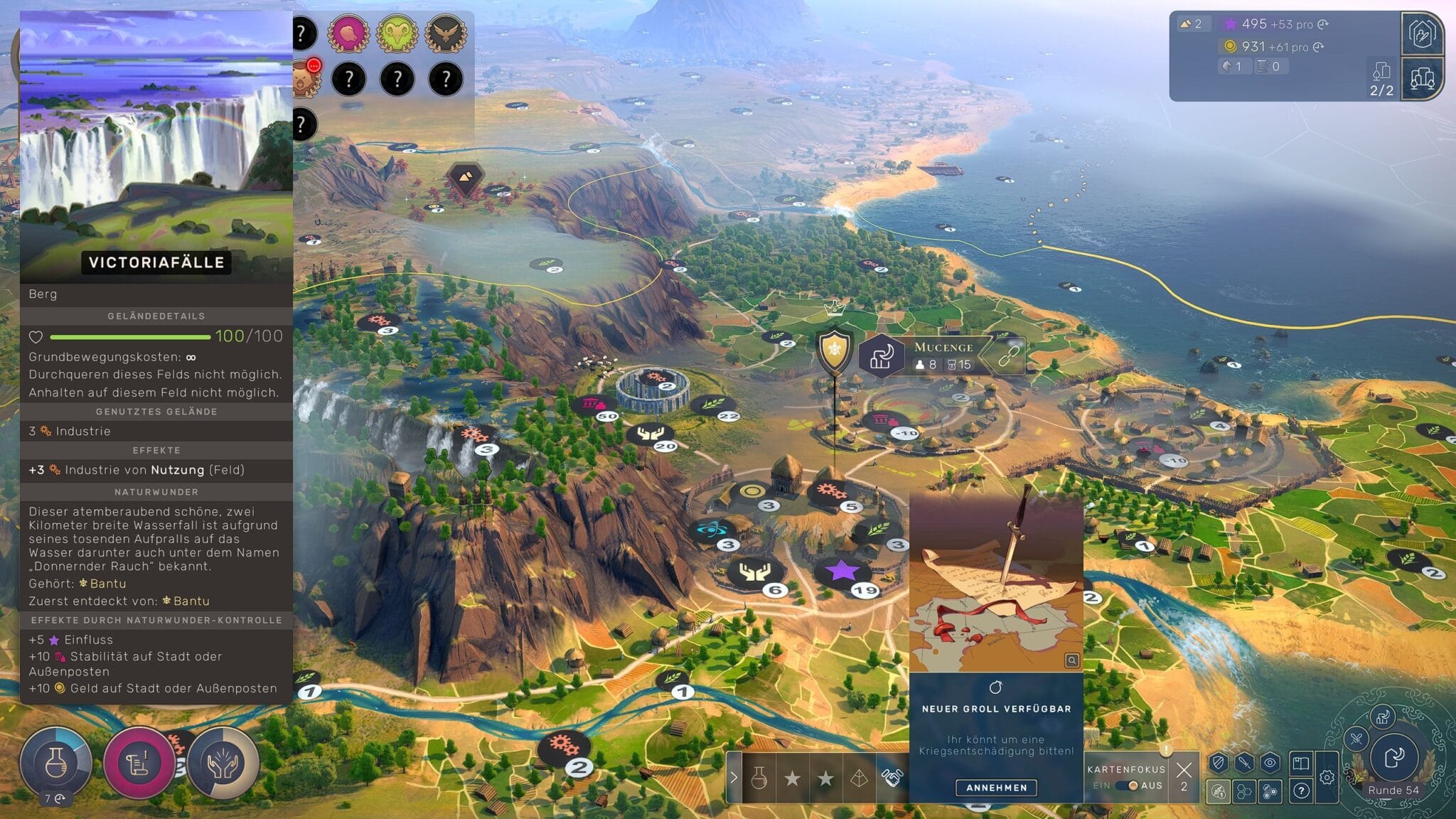
There are still many construction sites
Little to nothing has been done about the other old problem areas of Humankind. Taking over barbarians is far too easy, constructing buildings in cities continues to feel trivial and the AI has to cheat hopelessly to get by
The AI’s combat behaviour also leaves a lot to be desired. For example, it doesn’t get that ships can’t be used in most city defences – and still sends them all to their deaths. In addition, the battles in the lategame become annoying. Sometimes it takes several minutes to calculate and animate the opponent’s move.
And speaking of calculation: The strange quirk of the game to recalculate the opponent’s last turn when loading has not been changed. So if you save in a critical situation, then fail and rush back to the old game state with the knowledge you gained, you often find yourself facing a different situation and have more or less wasted the game time since the save.
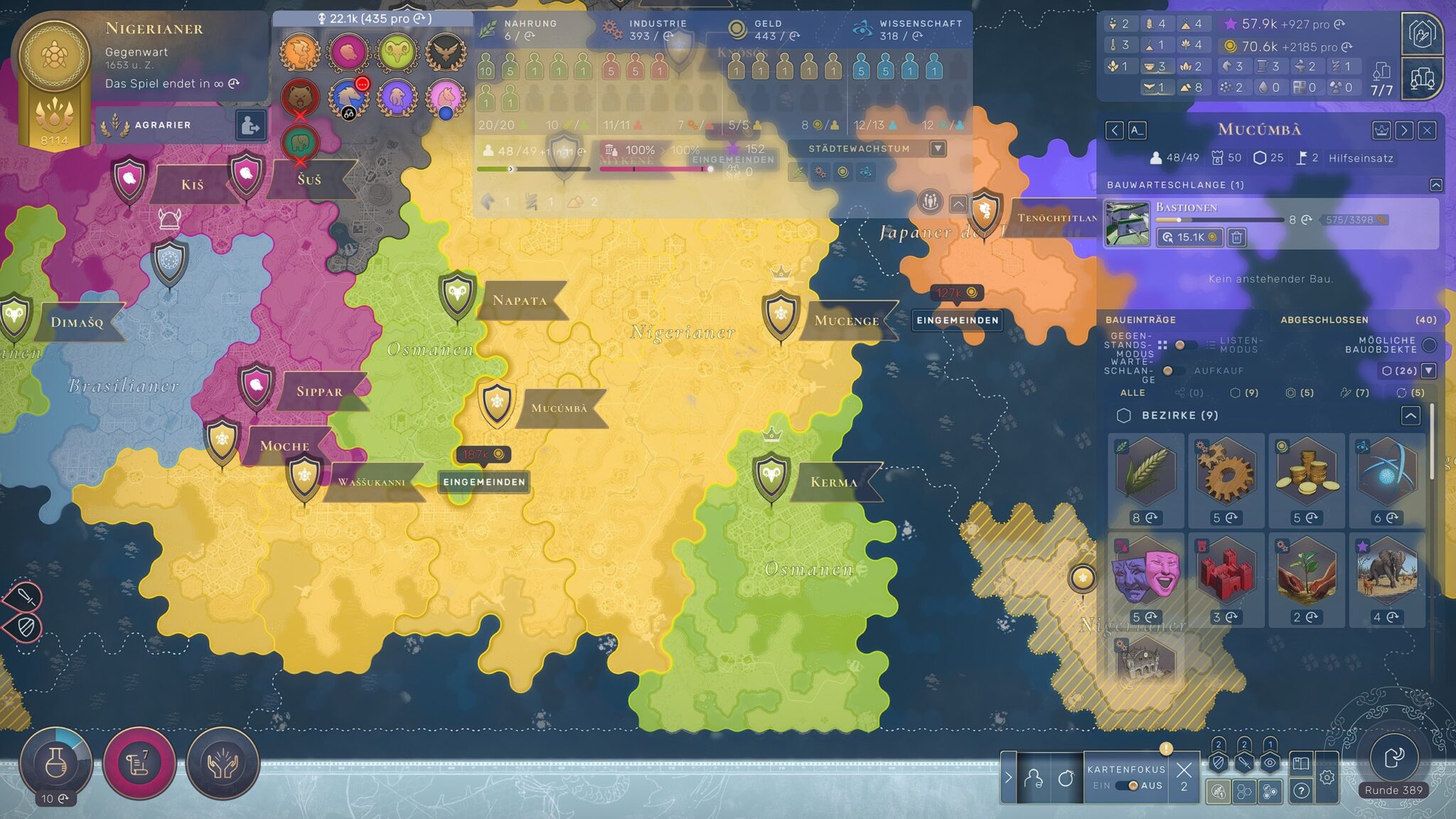
Another shortcoming compared to Civilization is the map generation. Ultimately, in Humankind, all continents always look like the same egg-shaped blob, which hurts exploration, tactical options and replay value.
Humankind is still a good game
Despite all the criticism, Humankind is still a good game. Just like at release, it’s fun to progress through the eras, make ideal use of the special bonuses of the cultures and grab as much of the world as possible.
But anyone who had hoped that Humankind would develop quickly and represent a longer-term alternative to Civilization has been disappointed so far. So if you were hesitant about buying it when it was released, there is no reason to buy it yet. Because the wait for real progress in terms of content continues.
Editorial conclusion
Much like Age of Empires 4, I’m surprised at the opportunity the developers of Humankind are squandering right now by keeping relevant updates coming. The persistently poor ratings on Steam are likely to stifle future sales more and more.
With a quick reaction to the criticism and a first meaningful expansion, Humankind Civilization might have been able to hold a candle to its big competitor and gradually stalk it. But this way it will come to nothing. While Civilization 5 and 6 together have up to 80,000 users playing simultaneously on Steam, Humankind is stuck at around 1,000.
That’s a shame, because Humankind brought a breath of fresh air to the somewhat dusty genre. So we will probably have to wait for Humankind 2, which will hopefully learn from the mistakes of the first game and then be completely convincing right from the start.

